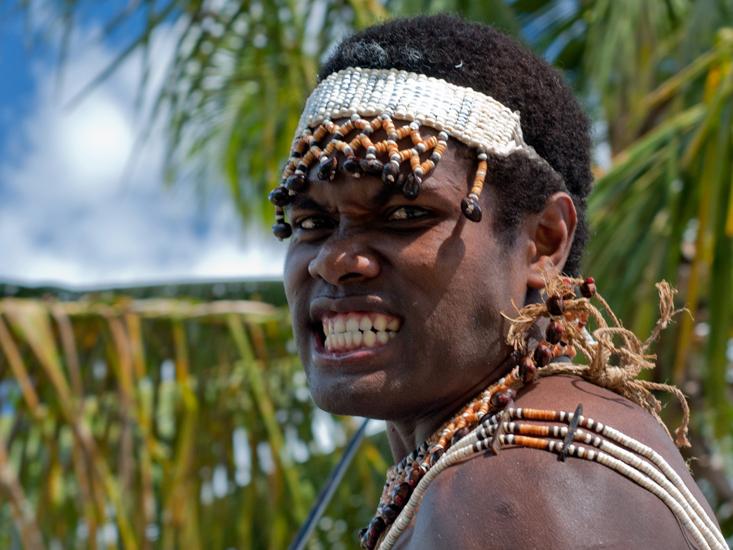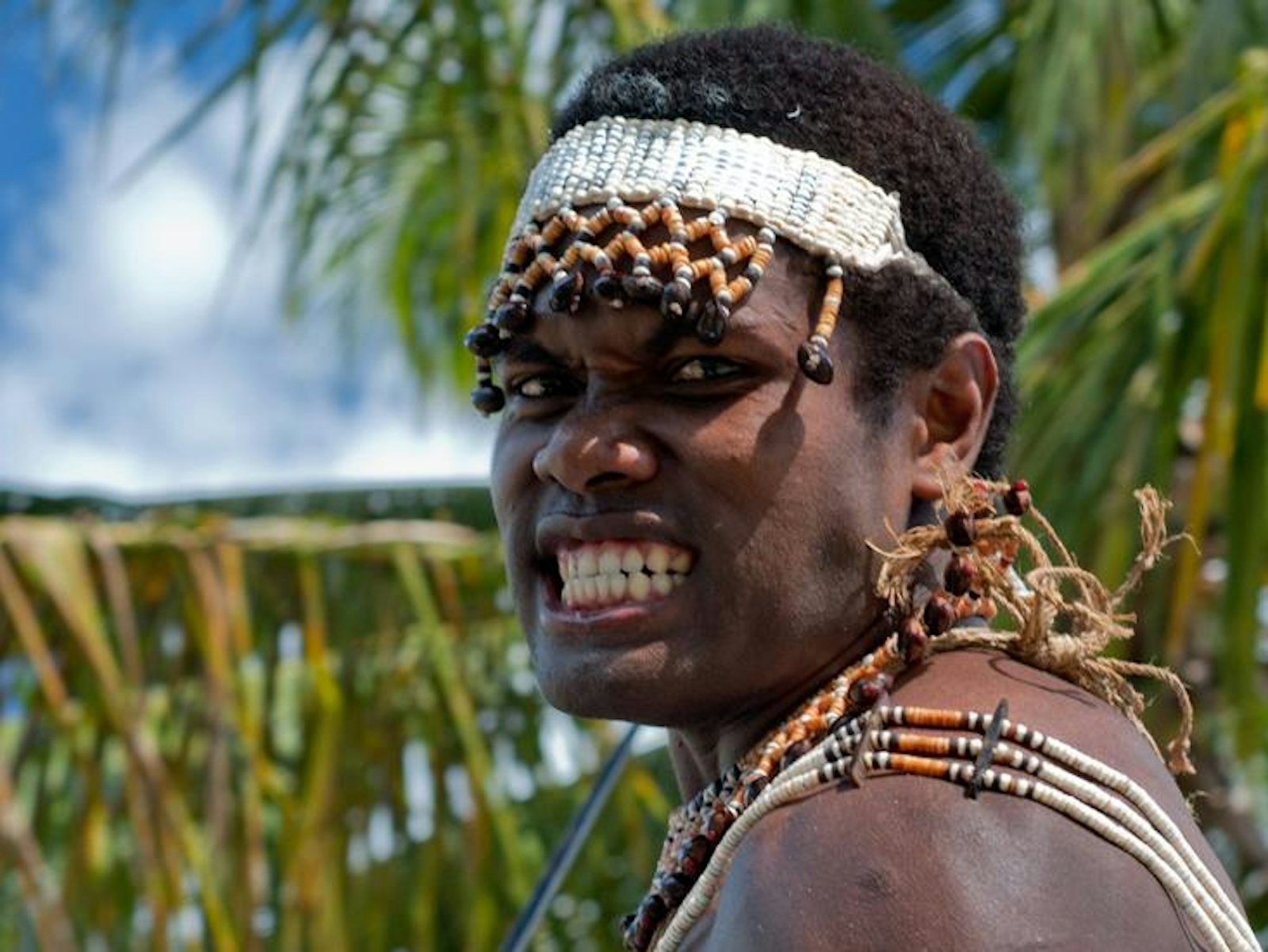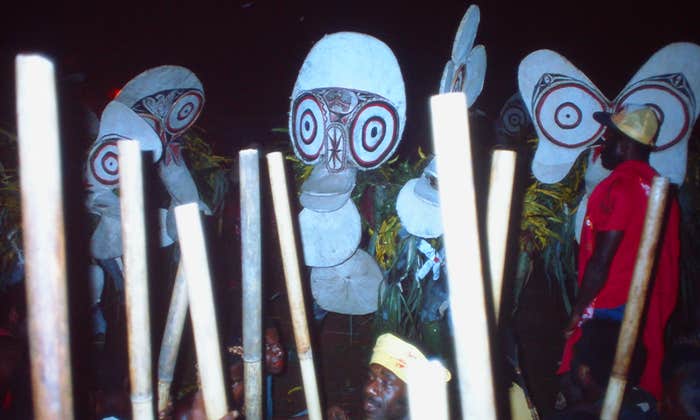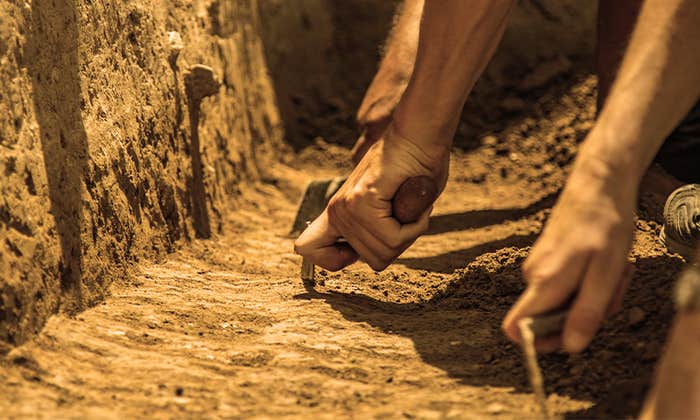Warriors among the Kwara’ae, a collection of tribal communities indigenous to the Solomon Islands, sacrificed pigs before battle. The tradition granted the combatants, so the belief went, aid from heroic ancestral spirits—like the mighty A’orama, a fierce fighter in Kwara’ae folklore. For every man who prepared to shed blood, a hog met its end.1

Any non-superstitious observer might regard this ritual as a costly habit. Why give offerings when one can eat them instead? This puzzle is not unique to the Kwara’ae. Why pray? Or erect and attend churches, mosques, temples? Or observe holidays and fast? All that time and energy could be spent more practically.
But maybe these acts are actually extremely practical. Shared beliefs and rites may serve an important social function: promoting cohesion.
Unlike bees, ants and other insects, which form large, complex groups with their close cousins and siblings, humans do so with complete genetic strangers—at huge scale. Doing so requires a special kind of cohesion.
“For thousands of years all human beings lived in foraging societies—in small hunter-gatherer bands—egalitarian, face-to-face societies,” says Ara Norenzayan, a professor of social psychology and religious studies at the University of British Columbia in Canada. “Then they started to scale up in the Holocene [an era that began about 12,000 years ago] and that scaling up continues to now.” He believes religion and ritual have played an integral role in making this happen.
In his 2013 book Big Gods, Norenzayan argues that civilizations grew in conjunction with systems of belief, and that big gods—“powerful, omniscient, interventionist deities concerned with regulating the moral behavior of humans”—enabled more complex societies. Bigger gods, in his view, built bigger groups.
To test this hypothesis, researchers in New Zealand have turned to a new tool: Called Puloto (“abode of the gods”), it consists of a database focused exclusively on Austronesian cultures, or civilizations in the South Pacific.
“The Pacific is really interesting because it’s this natural laboratory of all these different islands that have been semi-independent for hundreds of years,” says Quentin Atkinson, a cultural anthropologist at the University of Auckland, who collaborated on the project. “These little experiments,” as he calls them, can be used “to test hypotheses.”
So Atkinson and Joseph Watts, a PhD candidate at the University of Auckland, analyzed Puloto using a statistical approach called the Bayesian phylogenetic method to pose the following question: Does a belief in big gods spur societal complexity, or do big gods simply emerge in complexity’s wake?
By parsing related words in various language groups, the team mathematically determined the distances between cultures along the roots, limbs, and offshoots of the Austronesian family tree. This allowed them to make sure they were comparing cultures that were independent from each other. Then, they ranked each culture on a spectrum of political complexity—“low” complexity for local community rulers, “high” for multiple strata of chiefdoms.
Of the 96 cultures examined, 37 used broad supernatural punishment, 22 displayed high political complexity, and only six—clustered predominantly in Southeast Asia—demonstrated belief in big gods, which the researchers call moralizing high gods. Contra Norenzayan, their data suggested that belief in big gods does not propel political complexity, but arises instead from cultural exchange among already complex societies.
It is not big gods alone that catalyze complexity, the team argued, but a belief in what it calls “broad supernatural punishment” which includes big gods but also “fallible localized ancestral spirits and inanimate processes like karma.”
The team appropriated the concept of broad supernatural punishment from Dominic Johnson, a professor of evolution and religion at Oxford. Johnson maintains that the idea ghost cops makes evolutionary sense because they are cheaper to maintain than actual police forces. And when someone commits a crime, immaterial authorities don’t need to drum up evidence to prosecute a suspect; they automatically know the culprit and deliver justice accordingly—a potent deterrent.
“I loved the method,” Johnson says in praise of the New Zealand teams’ work with Pulotu. “We did not have until now a really good ethnographic cross-cultural database from which people could draw that concerned supernatural punishment.” Unlike other databases, Johnson notes, Pulotu includes a temporal element as it allows one to follow the growth of the Austronesian family tree’s branches. That addition, he says, “was a big step forward.”
Like Johnson, Norenzayan praises the model’s inclusion of a time element. “Historical data is really neat,” he says. “Knowing what came first helps a lot with the question of how things developed, and which causal direction is more plausible.” However, he finds the results of the study to be “broadly consistent” with his own view: Local spirits and karmic forces of the kind found in the broad supernatural punishment hypothesis are to be generally regarded as “precursors” to his big gods, like those of the Abrahamic faiths. Pulotu may have simply found a group of societies in which big gods developed more slowly. “You have to be careful looking at one place, one historical region. Cultural evolution can be different in different places.”
Whatever the case may be, both sides agree that supernatural punishment plays a vital role in the growth of societies. Threats motivate groups to coalesce and cooperate, and phantom forces encourage and maintain social order.
Even if the pork goes uneaten.
Robert Hackett is a reporter for Fortune @rhhackett
Reference
1. Burt, B. Tradition and Christianity: The Colonial Transformation of a Solomon Islands Harwood Academic Publishers Society, Chur, Switzerland (1994)


























